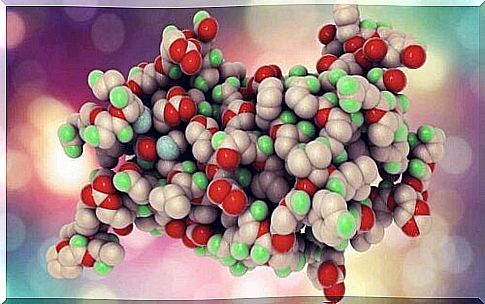Everything You Need To Know About Stress Hormones

Stress hormones are essential in all living things. To run away from danger, react to the demands of the environment, activate ourselves to solve a problem, or just “awaken” all our mental resources to take an exam. These are all essential processes in which these small but powerful molecules play a major role. Read all about stress hormones here!
When you hear the word “stress2”, you will probably always associate it with negative experiences. We all know the impact stress has on our lives. In fact, most of us have gone through times when worries and external pressures have resulted in muscle aches, digestive problems, headaches, insomnia and other negative health effects.
The physical changes that these hormones create can be very intense and exhausting.
However, we must be clear on one point. Without these chemical reactions, humans would not survive. The stress response has made it possible for us to respond to everyday adversity in order to adapt to an increasingly complex environment.
Although today we do not have to defend ourselves against the same dangers that our prehistoric ancestors had, the demands around it are still challenging.
Understanding the mechanics of the hormonal network associated with this emotional response is always interesting and helpful.

About stress hormones: What is it really?
Each of us is programmed to respond to any threat, whether it is external, from a specific danger or triggered by an internal concern. Today, situations that are caused in a work environment due to financial or emotional problems act as stress triggers.
Threats, dangers and challenges are now invisible. They cannot be seen, as they used to be when our ancestors met a predator, for example. This natural stress response allows us to activate an infinite number of physical and mental resources. These help us face potential dangers, and all of this is actually quite normal and can be expected.
However, the real problem comes when this state of stress is constant. If we do not address the problems appropriately, and if we do not use adequate coping mechanisms, the stress hormones will continue to work. This is when physical discomfort and health risks appear.
Let’s find out how this network of hormones works.
Cortisol, the hormone that activates us
Cortisol is a steroid hormone that regulates a wide range of processes in the human body. Although it plays an important role in helping us respond to stress, it is also the key to many metabolic tasks, as well as those associated with the immune response.
Cortisol secretion is regulated by the hypothalamus and the pituitary gland and adrenal glands.
- Almost all human cells contain receptors for cortisol, which gives us an idea of how many processes it is involved in.
- For example, it is the key to controlling the body’s blood sugar level, promoting salt and water balance and blood pressure.
- Cortisol levels are higher during the day to allow us to be more active during the day.
- On the other hand, when we go through long periods of stress and anxiety, excessive release of cortisol can have serious effects. These include high blood pressure, mood swings, muscle aches, osteoporosis and even changes in body weight.

About stress hormones: Adrenaline helps you act in the face of danger
When you go through a stressful situation with sweaty hands, when your heart is racing and your mouth is dry. This response is mediated by one of the most important stress hormones, adrenaline.
We should point out that it also acts as a neurotransmitter. The body produces it in the adrenal glands and releases it mainly in times of stress, danger and tension.
Here are the changes that adrenaline generates in the body when it begins to be released into the bloodstream. Let us remember that all these changes have one goal, to prepare the body to fight or flee.
- It increases the heart rate
- It dilates the airways so that we can breathe in more air
- Adrenaline breaks down glycogen (a polysaccharide energy reserve found in muscles and liver)
- It dilates the blood vessels to optimize blood flow
- Finally, it facilitates the connection between nerve cells so that information moves faster
Vasopressin, a stress response modulator
Vasopressin is known as the antidiuretic hormone, which means that it has a connection with water in the body. But in recent years, researchers have discovered that it is an important hormonal component in our stress response.
Studies like this one conducted at the University of Edinburgh in 2017 give us data that helps us understand the meaning of vasopressin a little better.
- Vasopressin has a modulating effect on the body’s response to stressful or situations where you feel anxious.
- Among the stress hormones, vasopressin has a key function in promoting the release of ACTH. This biological element facilitates the secretion of corticosteroids such as cortisol.
- There is also another interesting aspect. This hormone is produced in a series of hypothalamic neurons that control the response to stressful environmental challenges. This means that when the brain interprets that we are facing a challenge, it releases precisely this element. Why? To initiate a whole series of important biochemical changes so that we can react to the situation.
About stress hormones: Conclusion
Every sequence that the brain activates to respond to everyday risk has no other purpose than to make us act. After all, this is the purpose of stress, to act when we face danger and try to eliminate the threat. Letting these worries and anguish drag out in time is what can break us. Remember that.









